AUGUSTA — There were times when Derek Vigue, who graduated in May from the University of Maine with a double major in finance and management, didn’t know how he was going to pay for his classes.
The 22-year-old Augusta resident, who now works for KeyBank, put himself through college, sometimes working two or three jobs, and sleeping on friends’ couches to save money. Paying for school was a struggle.
He found some help entering his junior year, in a $2,000 scholarship from a central Maine nonprofit group, the Calumet Educational & Literary Foundation. He also received the same $2,000 scholarship, the Tony Violette Memorial Scholarship, from the foundation for his senior year.
“It was definitely a struggle sometimes, but I knew I needed to do it,” Vigue said of his education. The scholarship “was such a generous award. It helped a lot. There were definitely times I didn’t know how I would pay for classes. I don’t know if I’d have been able to do the things I’ve done in school without it.”
This week, at the Le Club Calumet, where the charitable educational effort got its start before becoming an independent organization, the Calumet Educational and Literary Foundation Inc. celebrated its 50th anniversary.
Since its creation, the foundation, which began with only $8,000 in its coffers, has awarded grants or scholarships to more than 1,500 central Maine students, totaling nearly $1.35 million, according to Carol Gilbert-Tondreau, president of the foundation. The awards to help students go on to higher education come primarily from investment returns on a fund built from donations that has reached $2.5 million, which foundation officials anticipate will allow the foundation to continue giving out money for the foreseeable future.
Henry Breton, one of four surviving founding members, said Tuesday as he and other founders were presented with Mayor’s Recognition of Excellence awards by Mayor David Rollins that it all started with a conversation “over a bottle of beer, and now it is one of the greatest things this club has ever done.”
In 2016 the foundation gave $29,000 in scholarships and just under $20,000 in grants to 41 students. Every student who applied for a grant received a grant, which has also been the case for each of the last 20 or so years, according to Patrick Dostie, the foundation’s grants officer. Grants generally range from $500 to $1,000, while scholarships include larger amounts, of up to $13,000.
To be eligible, students must reside within the boundaries of ZIP code areas ranging from 04300 to 04399, or be a member of Le Club Calumet or a son or daughter of a member.
Jackie Lacasse, a trustee and former president of the foundation, said it is a common misperception that the foundation’s funds are available only to club members and their families, or to people of Franco-American descent. Some of the scholarships, most of which are funded by donations made in honor of past members, have specific requirements, which can include being related to a club member. The grants, however, are open to anyone in the capital area.
Gilbert-Tondreau said the foundation is guided by 24 trustees, who meet quarterly, and who review the 40 to 60 applications they get in a typical year.
The deadlines to apply are April 15 for scholarships and Aug. 15 for grants. Applications are available at the foundation’s website, calumeteducationfoundation.org.
While the foundation and the Franco-American Le Club Calumet have been separate entities since 1967, when the foundation was incorporated, club members’ history of encouraging local youths to advance their educations extends even further back than the foundation’s 50 years, as far as the club’s founding in 1922. At that time, however, according to Jan Michaud, a trustee and past president of the foundation, the club’s focus was encouraging students to continue their educations by enrolling in Cony High School.
In 1947, the club established its first scholarship fund, for students of Franco-American descent. In 1957, all club members began paying $1 on their birthday each year, with the money deposited into an education fund to help students pursue a post-high-school education, a program that continues today.
When the foundation was incorporated in 1967 as a way to collect and distribute money to help local youths further their education, it first did so by making no-interest loans to students. In 1988, at the suggestion of Ray Fecteau and Ray Lausier, both former presidents, the foundation switched from making no-interest loans to the current system of grants and scholarships.
Patrick Paradis, a former city councilor and state legislator, said he received funding from the foundation, which helped him to remain in college after his father lost his job at the Bates mill and took a lower-paying job, and his mother suffered from cancer.
Several trustees and officers of the foundation were grant or scholarship recipients when they were younger.
Erin Bechard, the foundation’s scholarship officer, said the roughly $2,000 she received when she was in college was “a tremendous help.”
Nicolas Patenaude, treasurer, said he, too, was a recipient, “as was pretty much everyone I grew up with. It’s definitely important to this community. And that’s part of why I felt an obligation” to get involved in the foundation.
Patenaude said the club’s money, about $2.5 million, was built up from donations and is invested, and dispersed, conservatively with a goal of keeping the foundation sustainable. He said the group aims for a yearly payout of 5 percent of the total each year.
“Our goal is to grow this long-term and keep up with the rising cost of education,” he said.
Robert Lacasse, another of the four surviving founders, said Tuesday the foundation continues to do a great job and he is sure it will continue into the future.
Valerie Pino, of Belgrade, in an emotional thank-you to foundation members, said the $13,000 Robert G. Fuller Jr. scholarship her daughter, Katelyn, received to study nursing at Saint Joseph’s College was a huge help. She believes her daughter’s decision to become a nurse was shaped in part by living, along with her mother and two siblings, with her grandmother, who suffers from dementia.
“I see Katelyn making an impact in the medical field, and with your help she is now able to attend Saint Joe’s,” Pino said. “As a parent, I can’t thank you enough for making such an incredible impact on my daughter’s life. Without your help I truly don’t know how we could have done this.”
Keith Edwards — 621-5647
Send questions/comments to the editors.


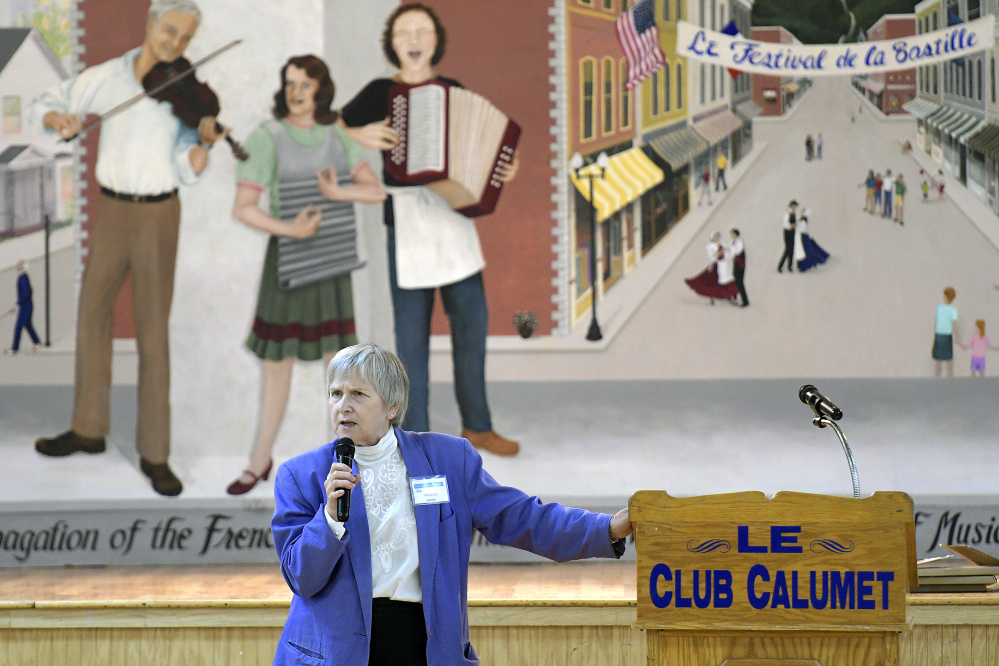
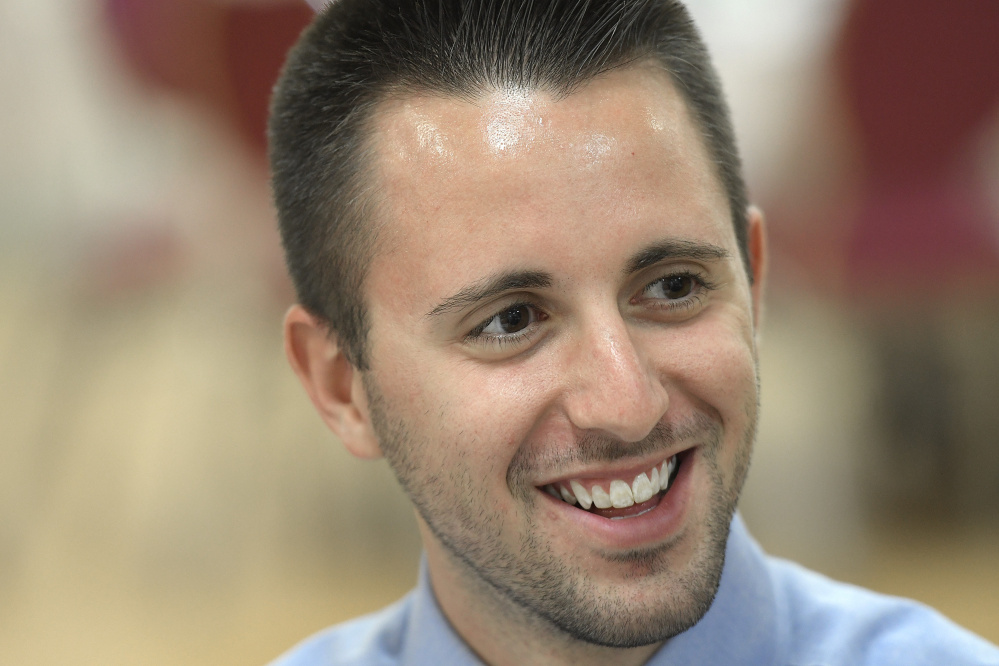
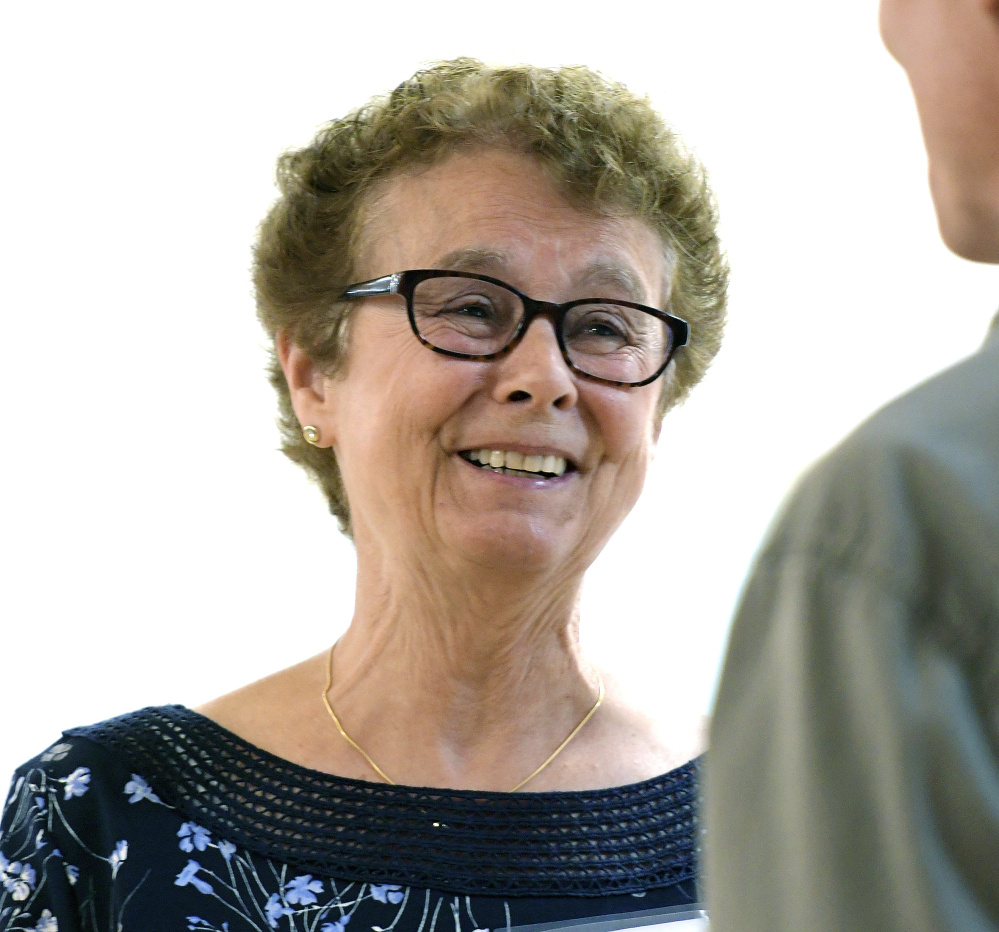

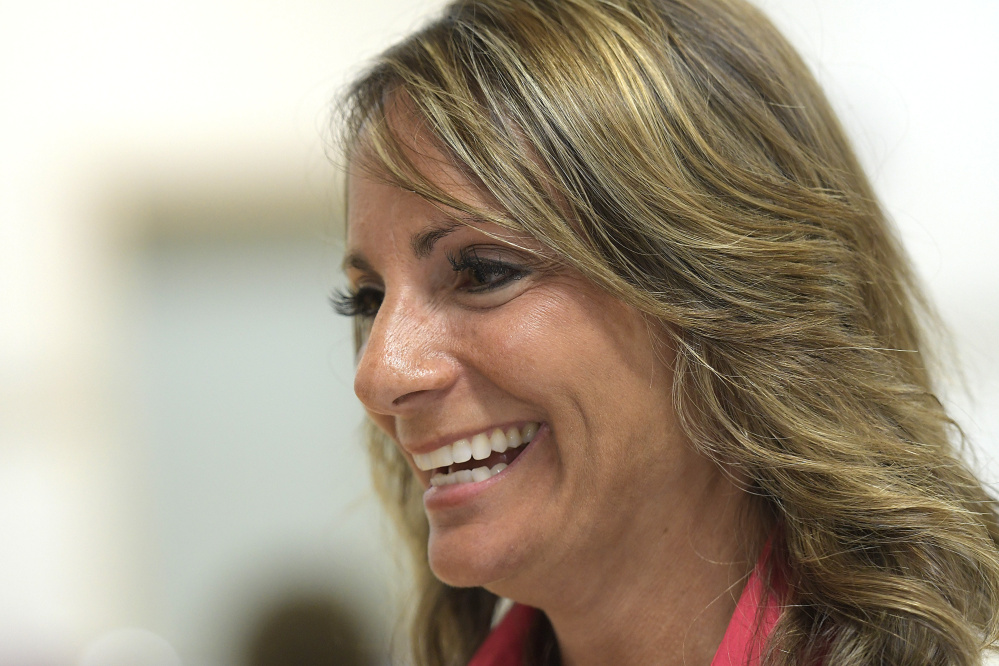
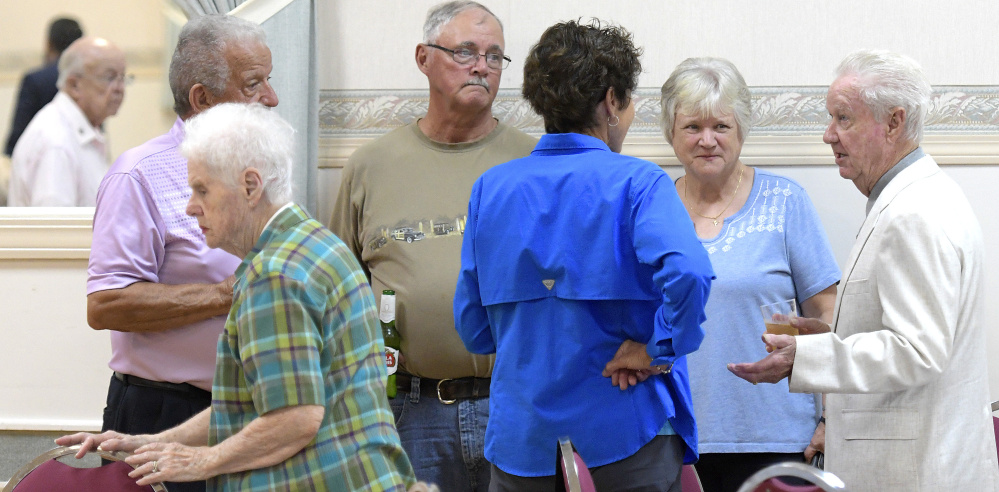

Success. Please wait for the page to reload. If the page does not reload within 5 seconds, please refresh the page.
Enter your email and password to access comments.
Hi, to comment on stories you must . This profile is in addition to your subscription and website login.
Already have a commenting profile? .
Invalid username/password.
Please check your email to confirm and complete your registration.
Only subscribers are eligible to post comments. Please subscribe or login first for digital access. Here’s why.
Use the form below to reset your password. When you've submitted your account email, we will send an email with a reset code.